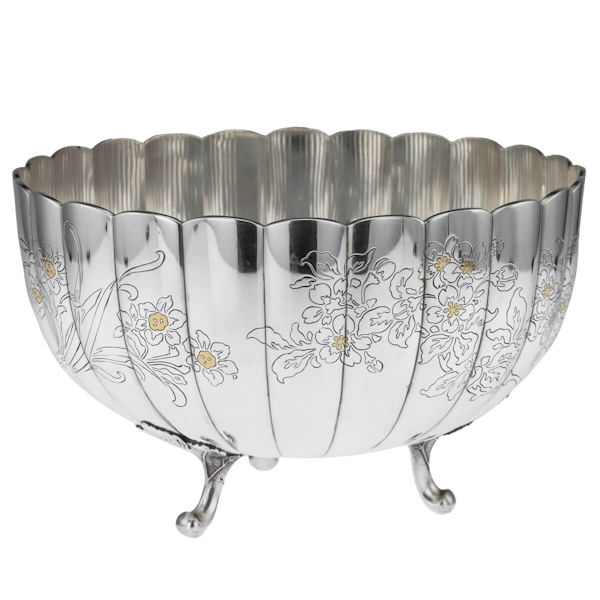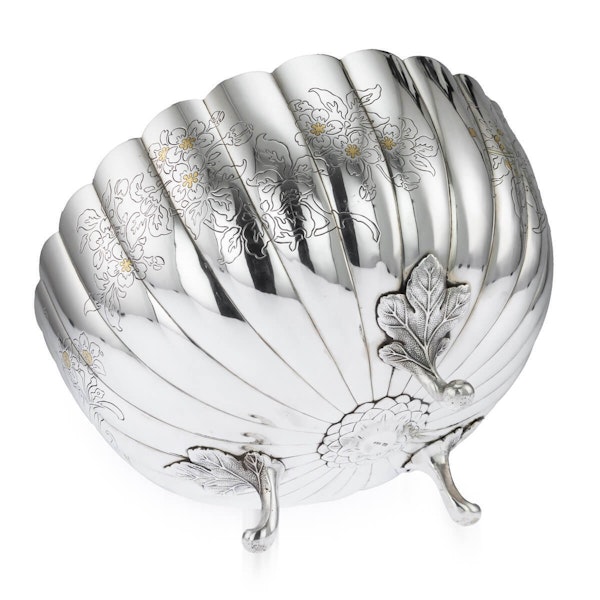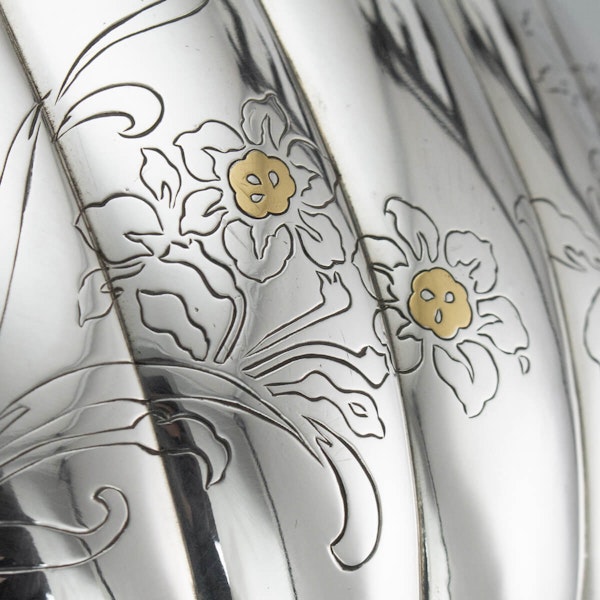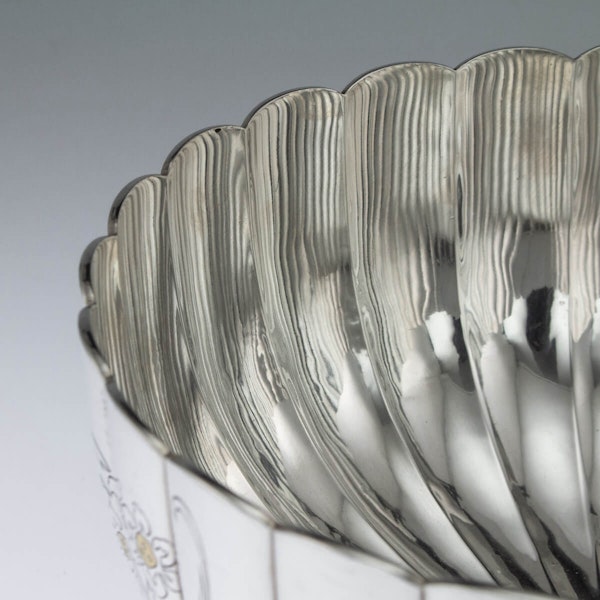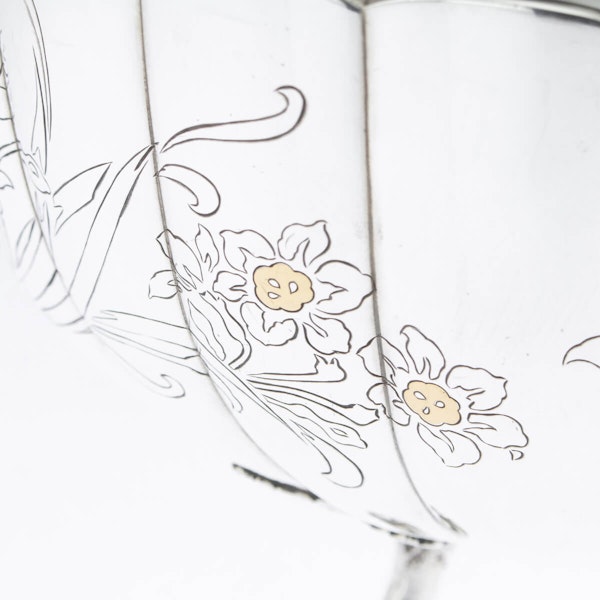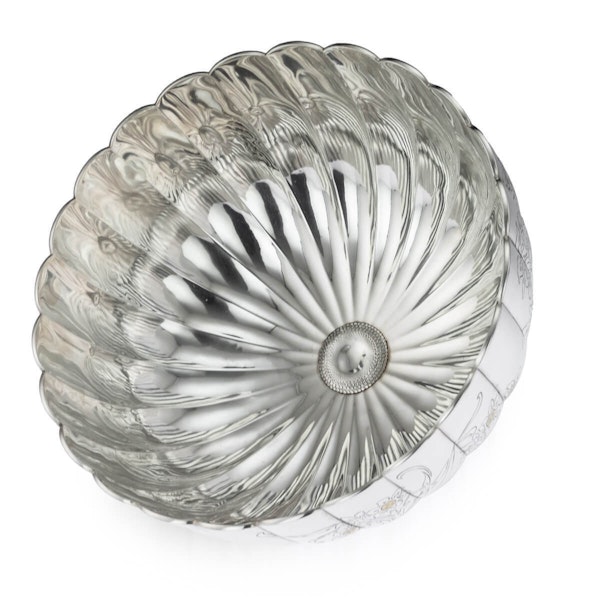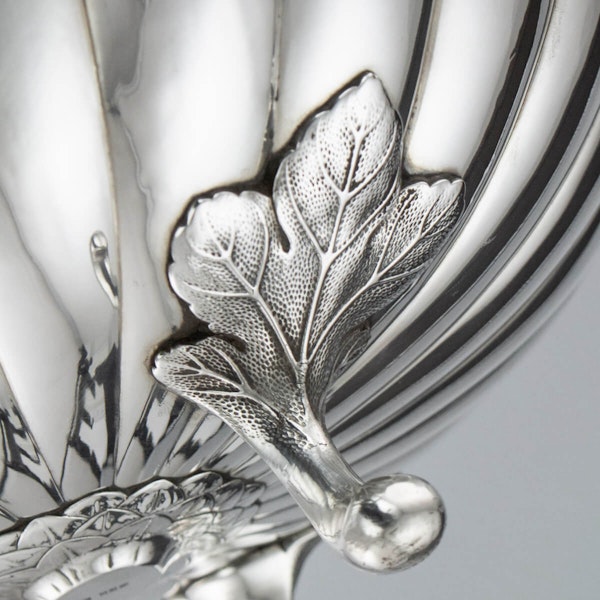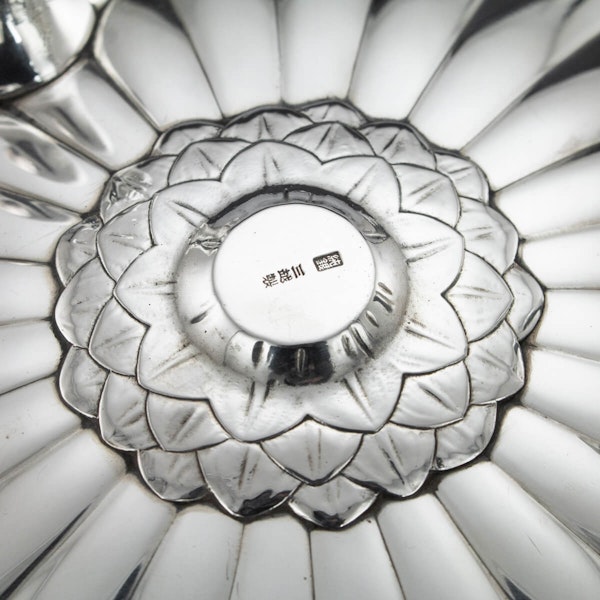Japanese Silver and Gold Bowl, Mitsukoshi, Japan - Taisho, Early 20th Century
Japanese Silver and Gold Bowl, Mitsukoshi, Japan - Taisho, Early 20th Century
£6,500.00
Description
This large Japanese silver bowl, inlaid with gold, was made by Mitsukoshi. The design is glorious; the bowl was made to resemble an open multi-petalled chrysanthemum flower. It was made in Japan during the first quarter of the 20th century, during the Taisho period, when the Japanese had the best and most skilful metal workers in the world, producing superbly hand-crafted silverware.
Japanese metalworkers had a long tradition of combining a variety of different metals within one piece, usually described as ‘mixed metal’ objects and this bowl has fine gold inlaid in some places, accenting the fine details of the flowers. The workmanship is of very high quality and the silver is of good gauge and is of a purity at least equivalent to sterling but probably higher. The design is timeless and elegant: contemporary today, it must have appeared shockingly avant garde when it was created about a hundred years ago! This bowl would be given pride of place in a room with any style of interior décor, contemporary or traditional.
The bowl has twenty-four narrow petal shape segments. Each petal segment is convex, enhancing the comparison with a flower. There is a circular boss to the centre of the bottom of the bowl. To the inside, this boss has been delicately punched around the edge, to a depth of about three rows, which gives the illusion that the boss is the central part of a flower. The intriguing way in which the panels reflect off each other across the bowl add movement and again create an illusion, blurring the distinction between reality and fantasy.
The exterior of the bowl has been ornamented with simple but very refined line drawings of flowers, which have been chased. The four flowers featured are the lily, paeony, cherry blossom and narcissus. Although the last, known in Japan as suisen, is not an indigenous species, it is well known and loved there. The bulbs were introduced to Japan about seven hundred years ago and now grow wild in some places. All the flowers have been depicted in a naturalistic style, complete with their foliage, stems and buds, or, in the case of the cherry blossom, as a small branch filled with flowers. The stamens to the lily flower and opening lily bud have been inlaid with gold, a technique known as zogon, as have the stamens of the blowsy paeony flower. The centres of each cherry flower have an area of gold inlay as do the open narcissus flowers. In these, three small circles of silver lie within the field of gold inlay, which has created the illusion of a little face peeping out of each flower.
The bowl is supported by three curling chrysanthemum leaf legs whose stems terminate in small balls, forming the feet. The leaves have been expertly shaded by well judged punch strokes in just the right places, enhancing realism. Around the edge of the boss and moving upwards from it are three overlapping rows of petals with each row comprising nine petals. The central fold of each petal has been expertly defined by two small incised lines. This represents the centre of the underside of a chrysanthemum flower, the part which attaches to the stem.
There are very clear and well struck marks in Japanese characters to the boss at the centre of the underside of the base. These state that the metal is silver and that the bowl was manufactured by the firm Mitsukoshi. This bowl would have been sold in one of its high-end department stores.
The famous Mitsukoshi department stores were modelled on American department stores and the first store opened in 1905. They were the first department stores in Japan and provided a new shopping experience for the Japanese consumer. They were very popular from the start and the chain of stores expanded very quickly. They sold a wide range of goods from the start including, a short time later, jewellery and silverware.
| item details | |
|---|---|
| Origin | Japanese |
| Period | Early 1900s |
| Style | Other |
| Condition | Excellent |
| Dimensions | 1700 grams |
| Diameter | Height 17 cms; Max Width 26 cms |
Product REF: 10028
